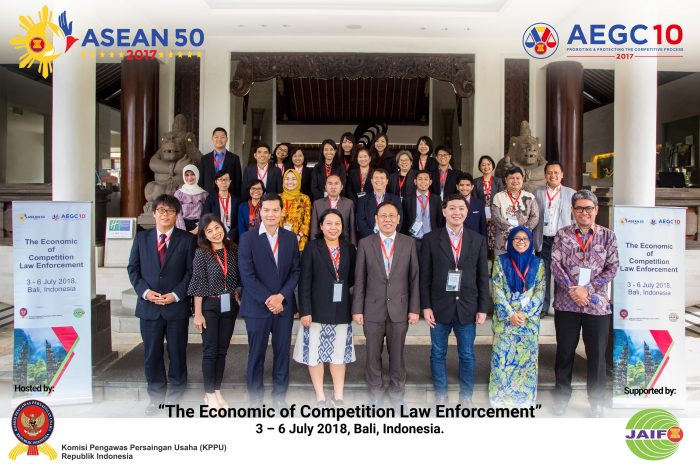Filter News
Latest News
ASEAN Competition Authorities Deepened Their Knowledge on Economics of Competition Law Enforcement

(Bali, 6 July 2018) - Commission for the Supervision of Business Competition (KPPU), in cooperation with Japan Fair Trade Commission (JFTC), held a four days training course on “The Economics of Competition Law Enforcement”, from 3 - 6 July 2018 in Bali, Indonesia. This training course was supported by Japan-ASEAN Integration Fund (JAIF).
The purpose of this training course is to enhance the understanding of ASEAN competition officials on the economic methods and techniques used in competition law enforcement.
The training course was attended by 25 participants from 10 (ten) ASEAN member countries, and the presentations were brought by prominent experts, namely Prof. Dr. Koki Arai from Shumei University, Dr. Eugenia Mardanugraha from University of Indonesia, Mr Hideyuki Shimozu and Dr. Atsuko Izumi from JFTC, and Mr. Taufik Ariyanto from KPPU. In the session of country experiences, Commission for the Supervision of Business Competition (KPPU), Malaysia Competition Commission (MyCC), Competition and Consumer Commission of Singapore (CCCS), Phillippines Competition Commission (PCC), and Vietnam Competition and Consumer Authority (VCCA) shared their experiences in utilizing economic techniques for competition law enforcement.
In his opening remarks, Dr. Kurnia Toha, Chairman of KPPU, stated that economics and competition law are like two sides of one coin, they are related in every way. Thus, the role of economist is essential in a competition authority, because they have to integrate their economic analysis from the very beginning of an investigation up to providing explanation of the theories used for the investigation to the judges.
In order to gain a proper knowledge on the main theme, the training course discussed the following topics: (i) screening markets for violations of competition law, (ii) instruction for market definition and assessment of market power, (iii) economic methods for cartel, (iv) economics of unilateral conducts, (v) restrictive agreement and vertical integration, (vi) the economics of merger and acquisition, (vii) application of empirical techniques for enforcement, (viii) how to conduct market survey in investigation, (ix) economic methods to calculate the antitrust damage/effect and, and (x) setting up remedies for anti-competitive agreements.
